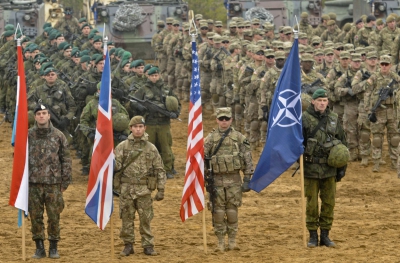Carlos Andrs Prez Rodrguez (27 October 1922 25 December 2010) also known as CAP and often referred to as El Gocho (due to his Andean origins), was a Venezuelan politician and the president of Venezuela from 12 March 1974 to 12 March 1979 and again from 2 February 1989 to 21 May 1993. He was one of the founders of Accin Democrtica, the dominant political party in Venezuela during the second half of the twentieth century. His first presidency was known as the Saudi Venezuela due to its economic and social prosperity thanks to enormous income from petroleum exportation. However, his second presidency saw a continuation of the economic crisis of the 1980s, a series of social crises, widespread riots known as Caracazo and two coup attempts in 1992. In May 1993 he became the first Venezuelan president to be forced out of office by the Supreme Court on charges for the embezzlement of 250 million bolvars (roughly 2.7 million US dollars) belonging to a presidential discretionary fund, whose money was used to support the electoral process in Nicaragua and hire bodyguards for President Violeta Chamorro.
A military, also known collectively as armed forces, is a heavily armed, highly organized force primarily intended for warfare. It is typically authorized and maintained by a sovereign state, with its members identifiable by their distinct military uniform. It may consist of one or more military branches such as an army, navy, air force, space force, marines, or coast guard. The main task of the military is usually defined as defence of the state and its interests against external armed threats.
In broad usage, the terms armed forces and military are often treated as synonymous, although in technical usage a distinction is sometimes made in which a country's armed forces may include both its military and other paramilitary forces. There are various forms of irregular military forces, not belonging to a recognized state; though they share many attributes with regular military forces, they are less often referred to as simply military.
A nation's military may function as a discrete social subculture, with dedicated infrastructure such as military housing, schools, utilities, logistics, hospitals, legal services, food production, finance, and banking services. Beyond warfare, the military may be employed in additional sanctioned and non-sanctioned functions within the state, including internal security threats, population control, the promotion of a political agenda, emergency services and reconstruction, protecting corporate economic interests, social ceremonies and national honour guards.The profession of soldiering as part of a military is older than recorded history itself. Some of the most enduring images of classical antiquity portray the power and feats of its military leaders. The Battle of Kadesh in 1274 BC was one of the defining points of Pharaoh Ramses II's reign, and his monuments commemorate it in bas-relief. A thousand years later, the first emperor of unified China, Qin Shi Huang, was so determined to impress the gods with his military might that he had himself buried with an army of terracotta soldiers.
The Romans paid considerable attention to military matters, leaving to posterity many treatises and writings on the subject, as well as many lavishly carved triumphal arches and victory columns.

1992Nov, 27
For the second time in a year, military forces try to overthrow president Carlos Andrés Pérez in Venezuela.
Choose Another Date
Events on 1992
- 1Feb
Bhopal disaster
The Chief Judicial Magistrate of Bhopal court declares Warren Anderson, ex-CEO of Union Carbide, a fugitive under Indian law for failing to appear in the Bhopal disaster case. - 1Mar
Socialist Federal Republic of Yugoslavia
Bosnia and Herzegovina declares its independence from Socialist Federal Republic of Yugoslavia. - 2Mar
United Nations
Armenia, Azerbaijan, Kazakhstan, Kyrgyzstan, Moldova, San Marino, Tajikistan, Turkmenistan and Uzbekistan join the United Nations. - 27Apr
International Monetary Fund
The Russian Federation and 12 other former Soviet republics become members of the International Monetary Fund and the World Bank. - 23Jul
Pope Benedict XVI
A Vatican commission, led by Joseph Ratzinger, establishes that limiting certain rights of homosexual people and non-married couples is not equivalent to discrimination on grounds of race or gender.

 English
English  español
español  français
français  português
português  русский
русский  العربية
العربية  简体中文
简体中文 